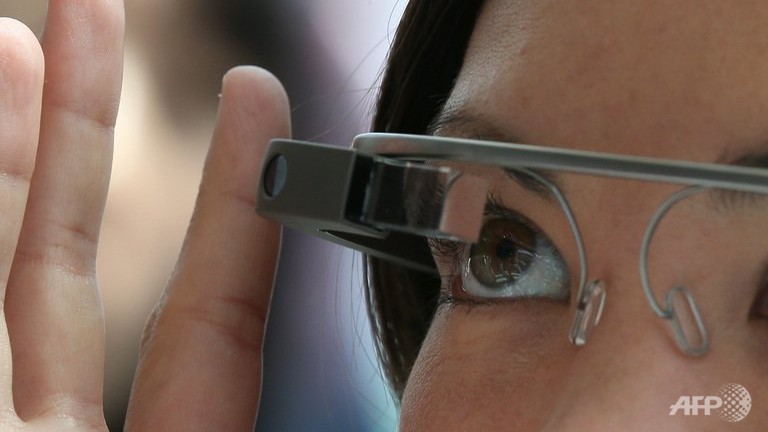
Google will make its controversial Internet-linked Glass eyewear available for purchase for a limited time in the United States beginning on April 15.
Google will make its controversial Internet-linked Glass eyewear available for purchase for a limited time in the United States beginning on April 15.
 |
| An attendee tries Google Glass during the Google I/O developer conference in San Francisco, California, May 17, 2013. |
Anyone in the United States with $1,500 to spend on Glass will be able to join the ranks of "explorers" who have gotten to test out the devices prior to them hitting the market, the California-based Internet titan said Thursday in a post at Google+ social network.
"Our Explorers are moms, artists, surgeons, rockers, and each new Explorer has brought a new perspective that is making Glass better," Google said in the post.
"But every day we get requests from those of you who haven't found a way into the program yet, and we want your feedback too."
On April 15, Google will commence what it billed as the biggest expansion of the Explorer program to date by letting anyone in the US buy the eyewear online.
Google said online sales would take place "for a limited time," but did not specify how long that might be.
Google in March said it is joining forces with the frame giant behind Ray-Ban and other high-end brands to create and sell Glass Internet-linked eyewear in the United States.
The partnership with Luxottica was portrayed as Google's "biggest step yet into the emerging smart eyewear market."
Luxottica brands include Oakley, Alain Mikli, Ray-Ban, and Vogue-Eyewear.
The first smart glasses by Luxottica for Google Glass will go on sale in 2015, the head of the Italian eyewear group said Tuesday.
Google has been working to burnish the image of Glass, which has triggered concerns about privacy since the devices are capable of capturing pictures and video.
Google recently sent out a release to debunk Glass myths including that it invades privacy, distracts wearers, and is for "technology-worshipping geeks."
"If someone wants to secretly record you, there are much, much better cameras out there than one you wear conspicuously on your face and that lights up every time you give a voice command, or press a button," Google said.
"If a company sought to design a secret spy device, they could do a better job than Glass."
During the Explorer testing phase, developers are creating apps for Google Glass, which can range from getting weather reports to sharing videos to playing games.
Google in February gave the early adopters a bit of advice: don't be "Glassholes".
It was the final suggestion in a recommended code of conduct posted online for the software developers and others taking part in the "explorer" program.
The Internet titan appeared intent on avoiding the kinds of caustic run-ins that have seen some Glass wearers tossed from eateries, pubs or other establishments due to concerns over camera capabilities built into devices.
Don't be "creepy or rude (aka, a "Glasshole")," Google said in a guide posted online for Explorer program members.
Glass connects to the Internet using Wi-Fi hot spots or, more typically, by being wirelessly tethered to mobile phones. Pictures or video are may be shared through the Google Plus social network.
(Source: AFP)





